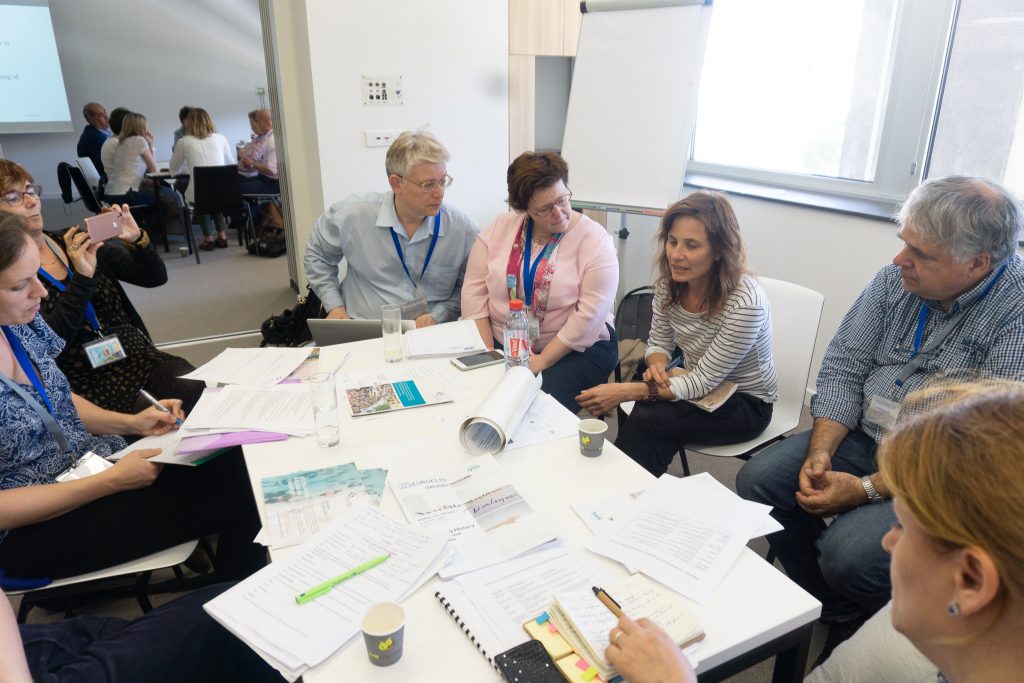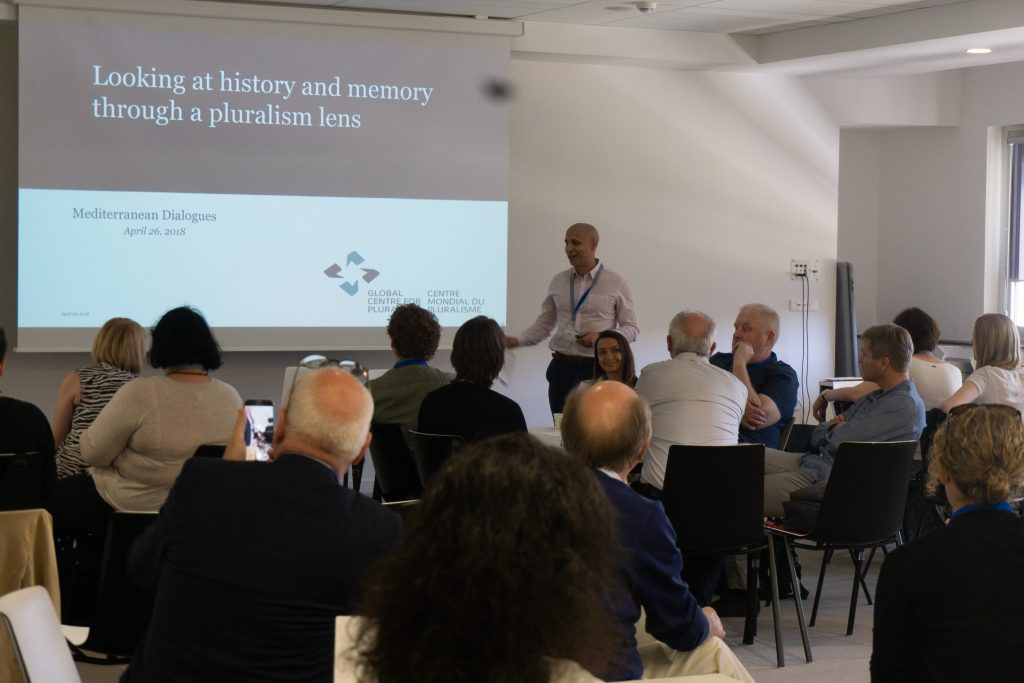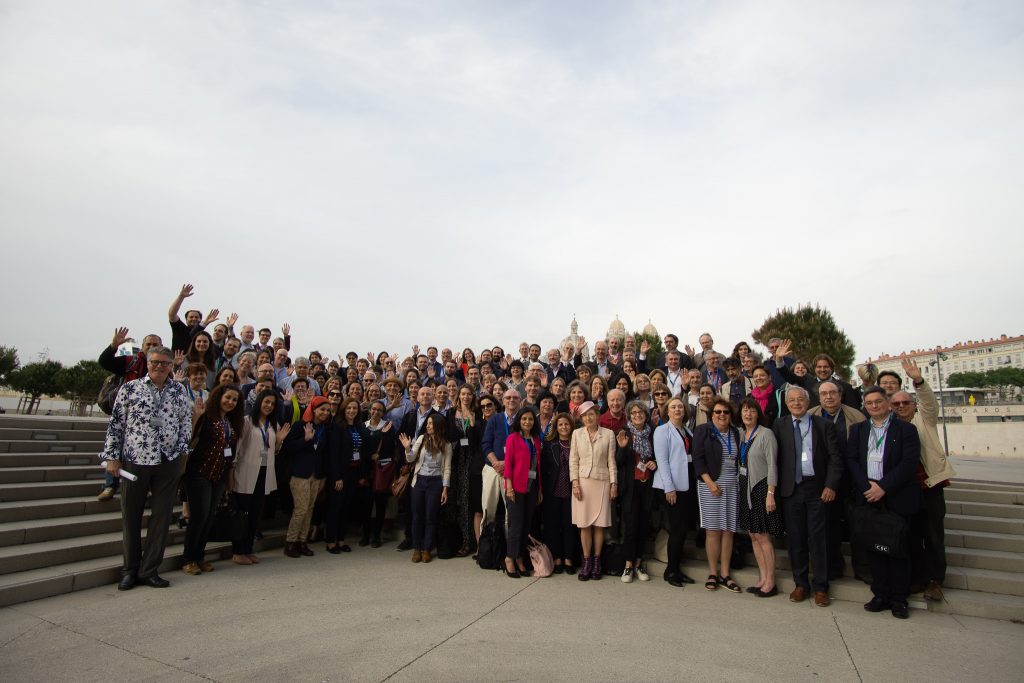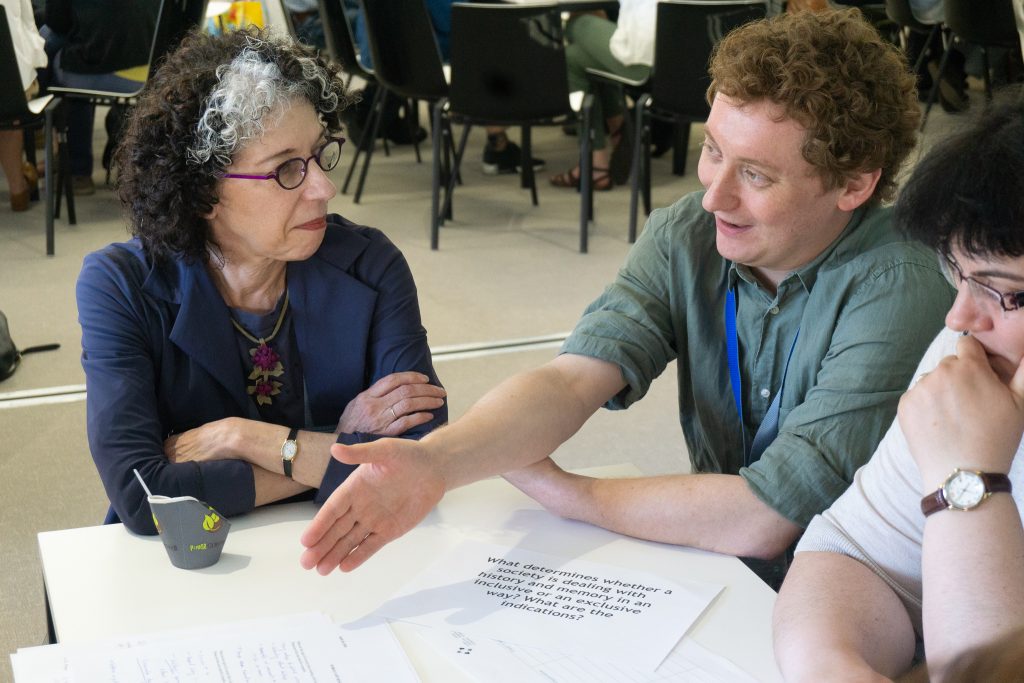EUROCLIO's 25th Annual Conference
On April 22-26, 2018, Centre staff attended EUROCLIO—European Association of History Educators’ 25th Annual Conference in Marseille, France. The conference theme was ‘Mediterranean Dialogues: Teaching History Beyond our Borders.’ It brought together approximately 200 people including history and citizenship teachers, educators, members of civil society organization and policy makers from more than 40 countries to discuss the teaching history of and on all sides of the Mediterranean. Throughout the conference, staff met with and attended sessions by history educators from across Europe and the Middle East North Africa (MENA) region about the challenges and opportunities they face in their classroom and education institutions.
Staff attended the Global Experts Group Workshop, a closed door session of 25 global experts who have produced cross-border history education resources. Participants included history educators and textbook writers from a diverse range of geographies where the teaching of history across borders has proved very challenging, including the Balkans, India/Pakistan, Israel/Palestine, Cyprus, Germany/Poland and Northeast Asia (Japan, China and South Korea). The session focused on the potential of history education as an important tool in the reconciliation process in several post-conflict geographies, and highlighted several of the key challenges facing history educators in these contexts. Questions that arose included: how do educators counter the “enemy narrative” that exists in several countries towards neighbouring countries (e.g. in Pakistan and India)? How can educators seek to address the past when reconciliation is incredibly challenging given how recent a country’s conflict is (e.g. the Balkans)? How do educators shift to a pedagogy that is more student-centred and encourages critical thinking and debate? Participants shared suggestions of what has worked best in their respective contexts and how important it is to use a multiperspective approach when teaching history.
On the final day of the conference, in partnership with EUROCLIO staff, Centre staff ran an hour-and-a-half workshop, “World Café Briefing: Looking at history and memory through the lens of pluralism.” After a presentation by staff on pluralism and the Centre’s work on history and memory, fifty or so participants worked in small groups to answer the following questions: What are the signs that a society is dealing with history and memory in an inclusive or exclusionary way? What can history educators do in practice to ensure that history is taught in a way that connects, rather than divides? How can history educators from different sides of the Mediterranean work together to advance mutual understanding? Participants shared examples from their own varied contexts across Europe and the Middle East North Africa (MENA) region. Themes that emerged included the importance and challenge of reconciliation and justice for historical grievances; the controversy over renaming or removal of monuments, statues and streets (e.g. the Cecil Rhodes statue at the University of Oxford); how sometimes teachers are able to teach beyond the curriculum and the textbooks in systems where they have more flexibility and autonomy; and how to teach history in countries and regions where there are multiple different – and often contradictory – versions being taught to different groups.




